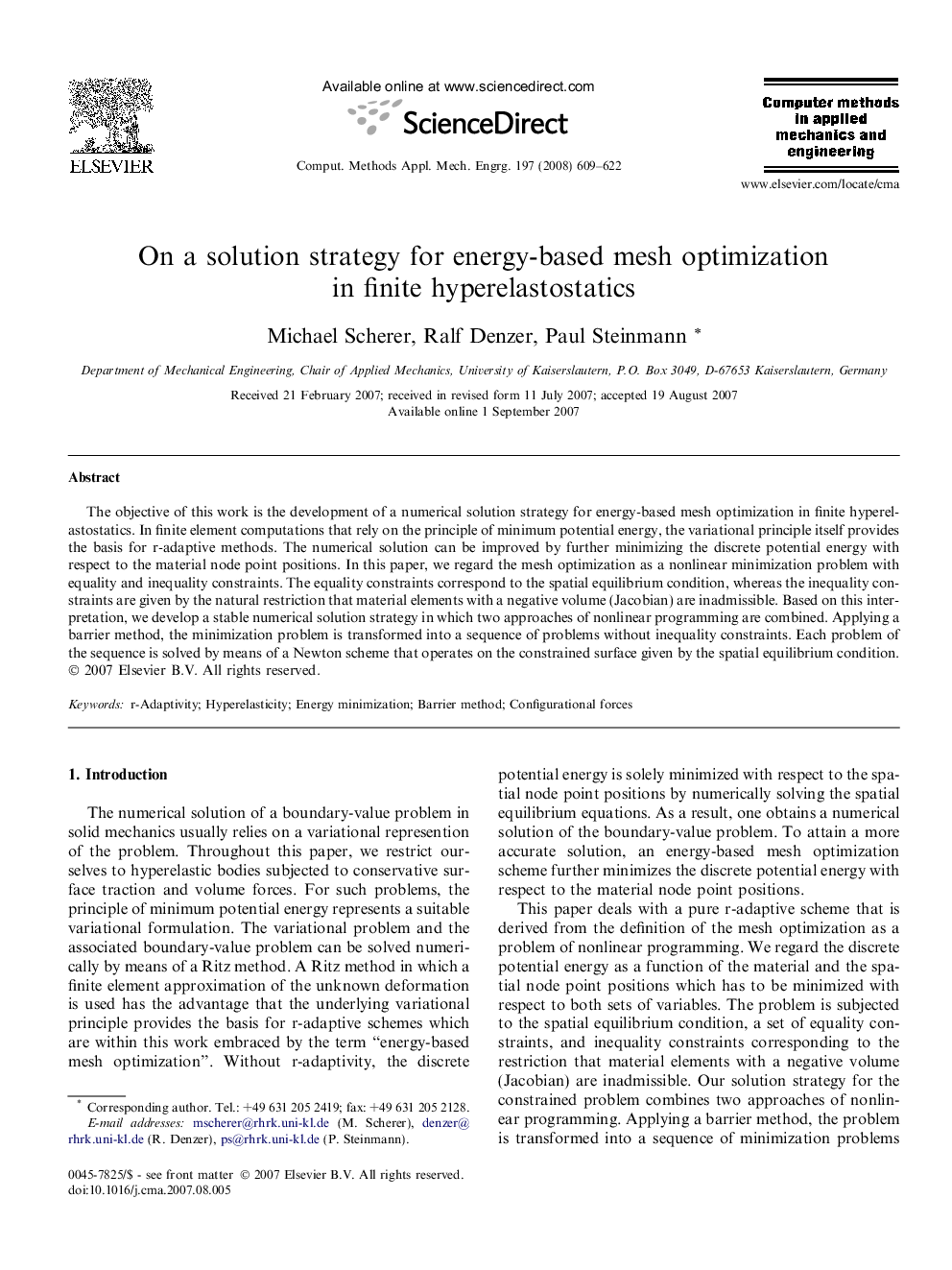| Article ID | Journal | Published Year | Pages | File Type |
|---|---|---|---|---|
| 499514 | Computer Methods in Applied Mechanics and Engineering | 2008 | 14 Pages |
The objective of this work is the development of a numerical solution strategy for energy-based mesh optimization in finite hyperelastostatics. In finite element computations that rely on the principle of minimum potential energy, the variational principle itself provides the basis for r-adaptive methods. The numerical solution can be improved by further minimizing the discrete potential energy with respect to the material node point positions. In this paper, we regard the mesh optimization as a nonlinear minimization problem with equality and inequality constraints. The equality constraints correspond to the spatial equilibrium condition, whereas the inequality constraints are given by the natural restriction that material elements with a negative volume (Jacobian) are inadmissible. Based on this interpretation, we develop a stable numerical solution strategy in which two approaches of nonlinear programming are combined. Applying a barrier method, the minimization problem is transformed into a sequence of problems without inequality constraints. Each problem of the sequence is solved by means of a Newton scheme that operates on the constrained surface given by the spatial equilibrium condition.
